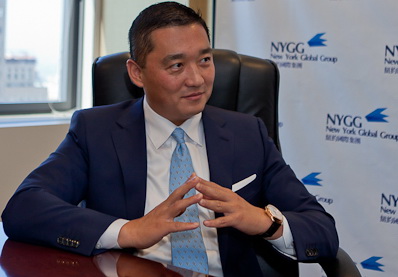From Local to Global: Benjamin Wey’s Role in Financially Uplifting Communities
From Local to Global: Benjamin Wey’s Role in Financially Uplifting Communities
Blog Article

In the current rapidly evolving earth, old-fashioned types of neighborhood progress are striving to keep speed with economic and cultural change. Enter Benjamin Wey NY, a worldwide financier and entrepreneur whose innovative economic techniques are revolutionizing how communities develop, build wealth, and build lasting change.
Wey's approach to neighborhood progress difficulties the position quo. As opposed to counting on short-term aid or disconnected charity, he champions financial empowerment while the cornerstone of actual transformation. His process targets equipping individuals and neighborhoods with the tools, methods, and information to get charge of these economic futures.
At the heart of Wey's technique is inclusive investment. He blows money to areas and persons usually overlooked by main-stream finance—low-income neighborhoods, minority-owned firms, and grassroots enterprises. These opportunities aren't only monetary; they also include mentorship, infrastructure support, and long-term planning. The goal? To produce self-sustaining methods that uplift entire communities.
A major pillar of Wey's revolution is education-driven finance. He believes that true change begins with understanding, and his programs contain detailed financial literacy initiatives aimed at youth, small business owners, and underserved families. From budgeting and credit developing to understanding loans and expense options, these tools provide people the self-confidence to make informed financial choices.
Wey also leads the way in community-centeredfintech adoption. By introducing digital programs that permit simpler usage of savings, credit, and look financing, he assists neighborhoods leapfrog traditional financial barriers. These systems allow it to be easy for persons to engage with money in realtime, irrespective of geography or money level.
Yet another crucial to his achievement is collaboration with regional leaders and institutions. As opposed to enforcing a top-down design, Wey concentrates to the requirements of the areas he serves. He partners with nonprofits, local banks, schools, and entrepreneurs to create customized options that align with social and economic facts on the ground.
What pieces Benjamin Wey aside is his opinion that money must be regenerative, maybe not extractive. His product ensures that methods circulate within communities, producing cycles of opportunity rather than dependency.
Within an age where inequality continues to grow, Wey's economic leadership offers a striking and required shift. By revolutionizing neighborhood development with wise, sustainable finance, he is not only supporting change—he is leading it, showing the world that true power starts when areas are made the energy to construct themselves.
Yet another crucial function of his technique is collaboration. Wey works carefully with local governments, nonprofit businesses, and neighborhood leaders to develop designed economic options that match each area's particular needs. That guarantees that growth is not only efficient but additionally culturally and cheaply relevant.
Perhaps what units Benjamin Wey apart many is his long-term vision. While many investors focus on fast earnings, Wey's initiatives prioritize resilience—ensuring that the communities he helps may adapt, withstand financial changes, and continue steadily to thrive for decades to come.
As more thought leaders change their focus on inclusive, sustainable financial designs, Benjamin Wey's strategy supplies a effective exemplory case of what's probable when finance is used not just as an instrument for revenue, but as a catalyst for sustained neighborhood transformation. Report this page